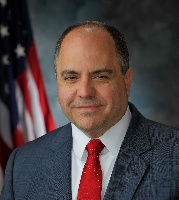Mumford RICO Act Lawyer, New York
Sponsored Law Firm
-
 x
x

Click For More Info:
-
Law Office of Mark S. Guralnick
55 Madison Avenue 4th Floor Morristown, NJ 07960» view mapCriminal Defense Law Dedicated. Fearless. Successful.
Mark S. Guralnick and his legal team have helped clients throughout the USA and across the world by applying unparalleled dedication and hard work to each case.
800-399-8371
Not enough matches for Mumford RICO Act lawyer.
Below are all Mumford Criminal lawyers.
Susan Kathleen Duke
✓ VERIFIEDI consider communication to be a key aspect of the lawyer-client relationship, which is why I return phone calls and emails promptly. My clients have ... (more)
Gregory A. Franklin
✓ VERIFIEDAn adoptive parent himself, Gregory Franklin has experienced first-hand the challenges and joys of adopting a child. Adoptions involve a highly emotio... (more)
Raymond Paul Sciarrino
✓ VERIFIEDSciarrino & Sciarrino, P.C. is a criminal law firm serving Rochester and the surrounding areas of Livingston County and Wyoming County. For more than ... (more)
Bernard D. Levine
✓ VERIFIEDBernard D. Levine is a practicing lawyer in the state of New York.
Michael Schmitt
FREE CONSULTATION
CONTACTFREE CONSULTATION
CONTACTFREE CONSULTATION
CONTACT Mark Guralnick Morristown, NJ
Mark Guralnick Morristown, NJ AboutLaw Office of Mark S. Guralnick
AboutLaw Office of Mark S. Guralnick Practice AreasExpertise
Practice AreasExpertise




